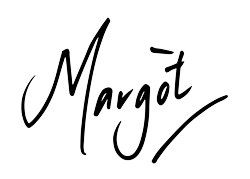‘Yesterday is not ours to recover, but tomorrow is ours to win or lose.’ – Lyndon B. Johnson
We’ve all experienced times where we feel we’ve blown it. It might be choosing the wrong hire or job, a failure to act, a slip of the tongue, an emotional outburst, or just a dumb decision when you think you should have known better. The reality is we all make mistakes, but they don’t have to signal irreversible damage or the end of our career. It is how we react and what we choose to do after that sickening moment we realise our error that determines just how big it turns out to be.
Understanding how we view these mistakes and failures is critical to if and how high we bounce back. When societies, businesses and individuals choose to view failure as experience rather than losing they are setting themselves on a course that is rich in new learning, networks and opportunities. They provide themselves and others with the confidence, clarity and energy to move forward and not remain stuck where they are.
Still the memory of our mistakes can sting for a while and recovering from them is neither inconsequential nor unimportant. If it was we would continue to make them with little regard for the consequences they held in both our immediate and long-term futures.
The reality is over the course of our lives and careers we will make mistakes. If we don’t, we are either playing it way too safe or not playing at all. Our bosses, peers and team members will also make mistakes. Again, how we choose to react will play a part in how big they become. As Alexander Pope wrote nearly three centuries ago ‘To err is human, to forgive divine’. Whether it be forgiving ourselves or those around us, we need to ensure that we are focused on the future and not in the messiness of the mistake.
Developing an inner strength and resiliency to move forward is critical. Without it we further compromise our position and opportunity for future success for those associated with our actions and ourselves. Martin Seligman, an American Psychologist who is well regarded for his work on positive psychology and resilience found that people who recover from setbacks and failure often view it as a temporary, localised and changeable event. Conversely those who struggle to move beyond their mistakes and failure learn to accept their scenarios as something they have no control over and consequently develop a ‘learned helplessness’.
Resiliency brings security. In a world that is characterised by constant change and uncertainty our ability to feel comfortable and move with the changing times, recover from setbacks and navigate the unknown is a critical skill for both personal and professional success. Our lives and careers today require us to be nimble, responsive and adaptable in both the good and not so good times. Anticipating risk, limiting fallout and the ability to ‘bounce back’ are essential skills for today’s leaders. Without it we not only risk our own career but also the performance and abilities of our teams by failing to see the opportunities that lie in front of us.
So how do we learn to think and act constructively rather than react in an emotionally destructive manner following a period of failure?
- Own It: To move beyond our mistakes we firstly need to own them by admitting to ourselves that it is our error. Denying responsibility holds us back, creates defensiveness and tends to protract the pain and period of time needed to resolve the issue. It also helps us avoid the blame trap.
- Acknowledge It: Whilst our first reaction is to want to hide away there will no doubt be some people who will need to know and who are impacted by your mistakes. Acknowledging our mistakes with honesty, integrity and transparency is also a powerful leadership example to set for those around us.
- Manage Your Emotions: Don’t sit on them or in them! Supressing them or dwelling on them prohibits any positive forward thinking or movement. Not only does it hold you back, it also drags you back.
- Mitigate The Risk: Invariably there are three immediate courses of action to choose from: Undo, Redo or Make Do. Understanding what your options are will help you to focus on what the next best course of action is to take.
- Understand Why: To learn from our mistakes we need to understand how and why they have occurred. It will help us to spot the early signs of reoccurrence, what actions we can take to avoid it and if possible what can be done to eliminate it.
- Repair It: Where possible we need to take the necessary actions to repair the damage that has arisen from our mistakes – with projects, with brands and with relationships.
- Forgive Yourself: More often than not we are our own harshest critics as our failings leave us feeling overwhelmingly disappointed, vulnerable and ashamed. We need to remind ourselves that ‘we did wrong, not we are wrong’. Continuing to berate ourselves keeps us reliving the moment and stops us from moving forward and learning from our mistakes.
- Fail Forward: Learning how to acknowledge, recover and learn from them allows us to grow as individuals and leaders. It helps us build and maintain the skills and relevance required for all that we do in life and in our careers.
Jazz great Miles Davis once said ‘When you hit the wrong note, it’s the next note that makes it good or bad’. When we as individuals and leaders know how to play those next notes and manage our responses to mistakes and failure, we can in turn support the mistakes and failures of those we lead. When we do this we are building and empowering a strong, bright and resilient future for both ourselves and the teams and businesses we lead.
As always I would love to hear your thoughts.


